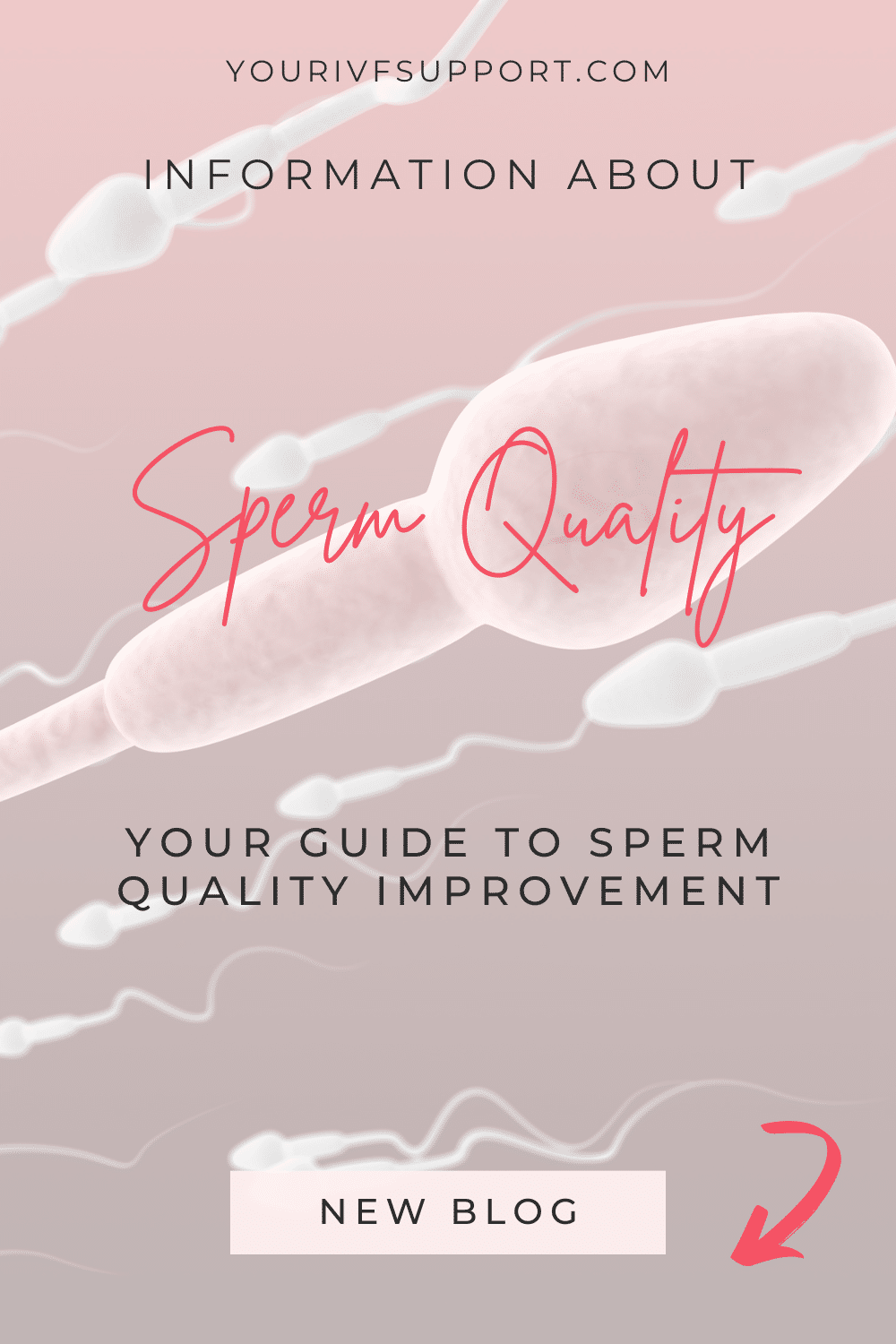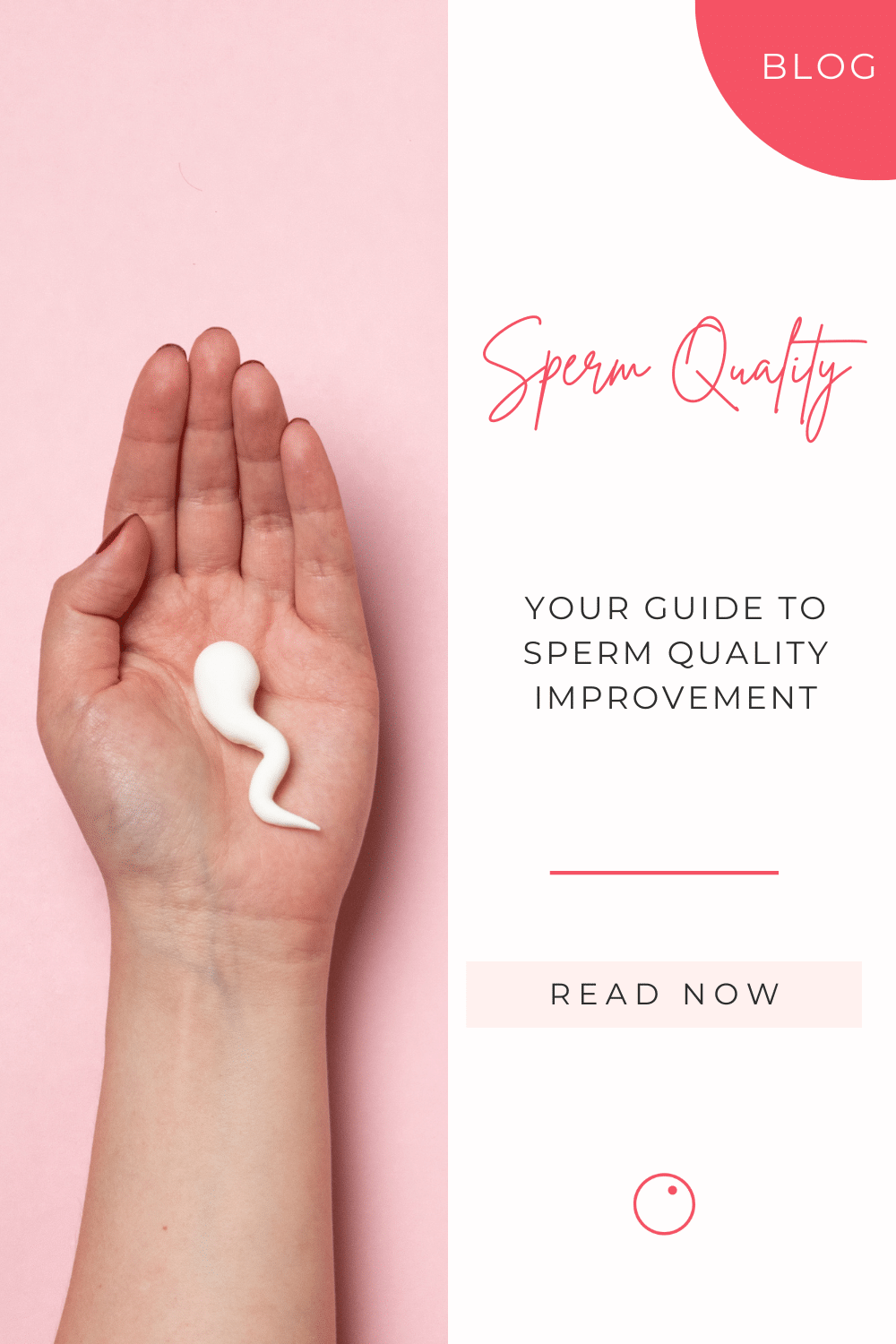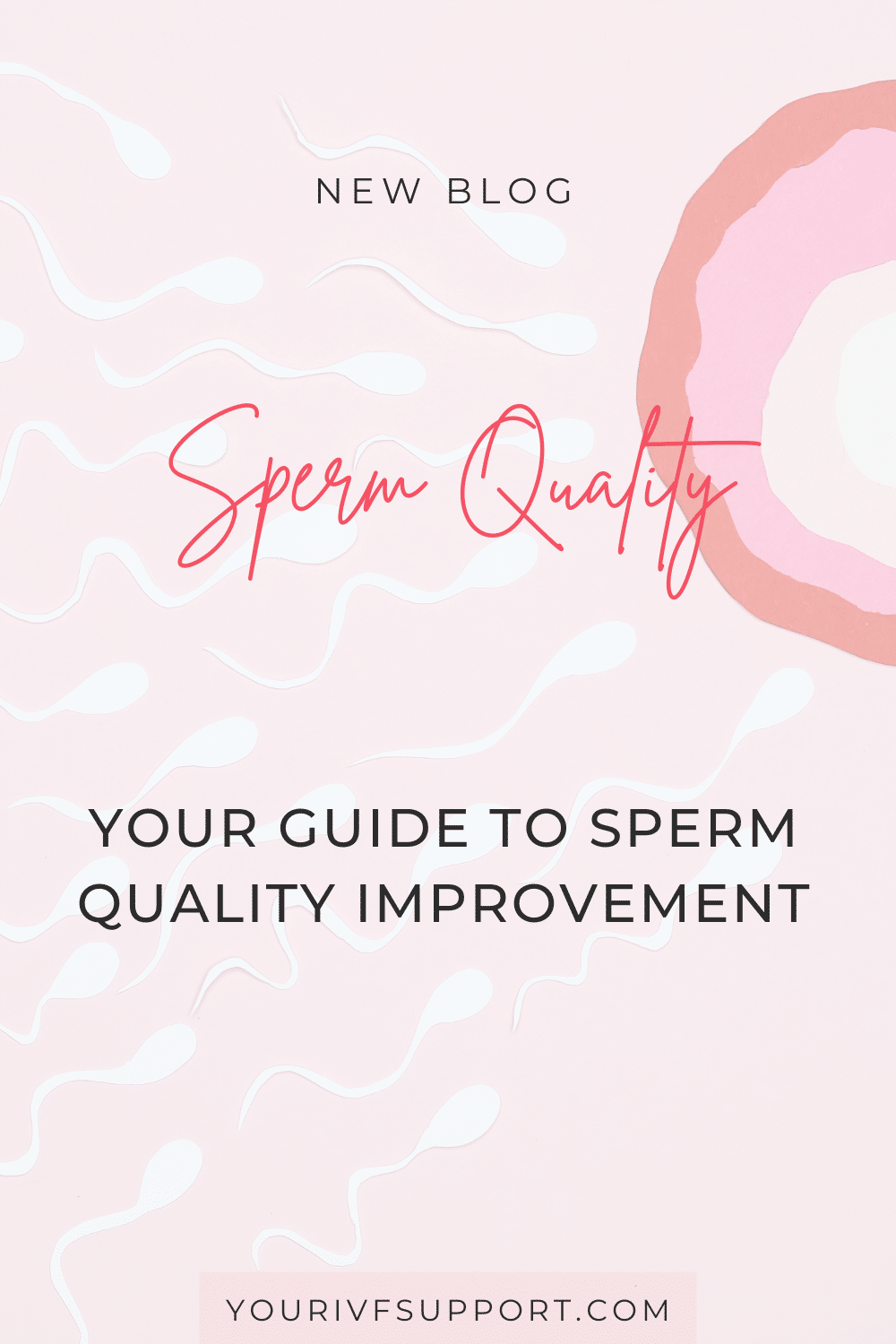Throughout human history, fertility has been a central theme, influencing not only our biological existence but also our cultures, traditions and emotions. In recent decades, however, our view of fertility has changed considerably, particularly with regard to the role of men.
In the past, women were often blamed for infertility, while men were usually not the focus of investigation. But now we know that both partners play an equally important role. In particular, sperm quality is a key issue when couples have difficulty conceiving a child.
The basics of sperm quality
A man's ability to conceive depends not only on the number of sperm he has, but also on their quality. And quality here means: their shape, their motility and their ability to fertilise an egg.
The morphology, or shape, of the sperm plays a crucial role. Normal sperm have an oval head and a long tail to help them move. But not all sperm look like this. Some may have two heads, a curved or too short tail, or other abnormalities. Too many of these 'abnormal' sperm can affect fertility.
The ability of the sperm to move, called motility, is also important. To fertilise an egg, the sperm must be able to move actively and purposefully.
Sperm concentration, i.e. how many sperm are present in a millilitre of ejaculate, also affects the chances of successful fertilisation.
One aspect that is often overlooked is the emotional and psychological impact that a diagnosis of poor sperm quality can have on a man. There may be self-doubt, shame, guilt and anxiety. It is important to address these feelings and seek support, whether through therapy, support groups or simply by talking openly with your partner.
Key factors affecting sperm quality
A man's fertility, or more specifically the quality of his sperm, is often an underestimated aspect of starting a family. While many believe that fertility problems mainly affect women, the truth can be surprising. There are several factors that can affect sperm quality, some of which are within your control and some of which are innate. In this article, we take a closer look at the world of male fertility and the main factors that can affect sperm quality. As well as the scientific facts, you'll also find practical tips and advice on how to improve your chances of having a successful family.
Genetics:
Our DNA is our body's instruction manual. It stores all the information that determines how our bodies work. Unfortunately, genetic factors can also cause problems. Certain genetic conditions, such as Klinefelter's syndrome, can affect sperm production. A genetic test can help not only to identify such conditions, but also to understand how they can be treated.
Lifestyle:
Our daily habits affect our health and fertility. Alcohol, drugs, poor diet and even stress can all affect sperm quality. A healthy, balanced diet, regular exercise and avoiding harmful substances are steps in the right direction.
Environmental factors:
We live in a world permeated with technology and chemicals. Some of these chemicals, such as pesticides, heavy metals and preservatives, can have a negative impact on sperm quality. It is important to be aware of these risks and try to minimise exposure.
Health problems:
A number of health problems can affect sperm quality. Conditions such as diabetes, mumps, certain sexually transmitted diseases and testicular cancer can have a direct effect. In addition, hormonal imbalances, although less obvious, can be just as damaging. It is important to have regular health checks and to recognise any symptoms early.

Practical tips for improving sperm quality
Remember that your fertility, like other aspects of your physical wellbeing, is often a direct reflection of how you take care of your body. Diet and lifestyle are key aspects of this.
Diet and nutrients: When you eat, you're not just ingesting food - you're affecting the little swimmers inside you. Antioxidants play a vital role in your sperm. Found in berries, nuts, dark leafy vegetables and fish, they act like a shield. They fight free radicals, hostile particles that can damage the DNA of your sperm.
The importance of vitamins and minerals such as folic acid, omega-3 fatty acids and vitamin D cannot be overstated. A lack of folic acid, for example, can lead to lower sperm counts. Meanwhile, omega-3 fatty acids, found in oily fish such as salmon, can improve the structure and function of the membranes around each sperm.
Lifestyle: What you put into or take out of your body is often reflected in the quality of your sperm. Excessive use of alcohol, nicotine and drugs is not only bad for your overall health, but also for your sperm. Alcohol can reduce testosterone production and therefore affect sperm production.
The benefits of an active lifestyle and a healthy weight are many. For your sperm, this means swimming in an environment that best suits their needs. Regular exercise can also boost testosterone levels.
And then there's stress. It may seem like an abstract enemy, but it has a tangible effect on the health of your sperm. Stress can lower testosterone levels and disrupt the balance of hormones needed for sperm production.
Environmental factors: We live in a world that is constantly changing, and unfortunately not always for the better. Our environment affects us in many ways, including the health of our sperm. One important consideration is exposure to harmful chemicals. This can happen both at work and at home. Chemicals in pesticides, plastics and other substances can disrupt the endocrine system and affect sperm production.
Another often overlooked factor is excessive heat. Yes, the testicles are sensitive organs and do not like too much heat. It is therefore advisable to take saunas and hot baths in moderation. You should also avoid holding laptops directly on your lap and keep the use of mobile phones in your trouser pocket to a minimum.
Medical factors: Health problems that may seem unrelated to fertility can have a significant impact on it.
Chronic conditions such as diabetes or high blood pressure can affect the quality and number of sperm. It is therefore important to manage these conditions well.
Medication can also be a double-edged sword. Some, even if prescribed for something else, can affect sperm quality. So it's important to talk to your doctor about any medication you're taking.
Finally, hormones. Hormones are the secret conductors of our bodies. An imbalance can affect not only mood and energy, but also sperm production.


Common myths and misunderstandings
In the world of reproduction, where hopes and fears go hand in hand, there are many stories about sperm quality. Let me share some of these myths with you and help you separate fact from fiction.
Myth: Sperm reproduce every three months.
Truth: While it is true that a complete sperm renewal takes about 74 days, the process of sperm production, or spermatogenesis, begins at puberty and ideally continues uninterrupted into old age. This means that new sperm are being produced at all times. The lifespan of a single sperm in the male body is about 2 to 3 months.
Myth: There is a link between trouser type and fertility.
Truth: There is a belief that tight underwear increases testicular temperature, which can lead to poor sperm quality. Although testicular temperature can affect sperm production, the direct link between trouser type and fertility has not been clearly established. However, it doesn't hurt to make sure your underwear is comfortable and not too tight.
Myth: Daily ejaculation reduces fertility.
Truth: Frequent ejaculation can reduce the amount of sperm you produce, but this does not necessarily mean that fertility will suffer. In fact, sperm quality may actually improve with frequent ejaculation because 'fresher' sperm are released. However, it is important to know that the total number of sperm can be reduced.
Myth: Age has no effect on male fertility.
Truth: It is true that men, unlike women, can have children for many years. But that doesn't mean that age has no effect on fertility or the health of their offspring. As a man ages, the DNA in his sperm can become damaged, which can increase the risk of certain diseases in the child.
Myth: Once you have conceived a child, there are no more fertility problems.
Truth: Just because a man has successfully conceived a child in the past does not mean he will not have fertility problems in the future. Fertility can be affected by many factors and can change over time.
These misconceptions show how important it is to educate yourself about male fertility and not rely on general assumptions. Every man and every situation is unique and an individual approach is often the best way forward.
" A man's ability to conceive depends not only on the number of sperm he has, but also on their quality. And quality here means: their shape, their motility and their ability to fertilise an egg."
Medical treatments and procedures
In our modern world, science and technology are constantly combining advances to offer hope and solutions for men with fertility problems. When I look at the multifaceted world of fertility medicine, I am impressed by the variety of options available to men today.
One of these options is surgery:
Varicocelectomy, for example, is a specialised procedure to treat a varicocele, a swelling of the veins that drain the testicle, which can affect sperm quality. In situations where no sperm can be found in the ejaculate, TESE (testicular sperm extraction) offers a way of extracting sperm directly from the testicular tissue.
Another exciting topic in this area is DNA fragmentation. This is a test that measures the amount of damaged DNA in sperm. This can help to understand why some couples have difficulty conceiving. Special sperm collection techniques or even antioxidants are often used as a treatment approach.
Microchip technology is revolutionising assisted reproduction. Imagine a chip that separates healthy sperm from damaged sperm. It's like giving a marathon runner a head start while the rest of the field is still at the starting line. Another powerful technique, ICSI, allows a single sperm to be injected directly into an egg to overcome problems with sperm motility. A further development, IMSI, uses a higher resolution microscope to select the best candidates for this injection.
Perhaps the thought of medical intervention is daunting. That is why there are methods such as cryopreservation, where sperm can be frozen for future use. This is particularly useful for men who are undergoing medical treatment that could affect their fertility.
In addition to these procedures, there are also natural remedies to increase fertility. From maca, a root with an ancient reputation for boosting fertility and libido, to nutrients such as zinc and folic acid, which are essential for sperm production. Ayurveda brings us ashwagandha, an herb known to increase sperm count and motility.
Each of these technologies and treatments shows how committed the medical community is to helping men with their fertility problems.
Conclusion
In our journey through the complex subject of male fertility, we have explored a great deal, from the basics of sperm quality, to the factors that influence it, to myths and medical interventions. It is clear that fertility is not just a matter of quantity but, more importantly, of quality.
The desire to have children is a deeply rooted human need, and when it goes unfulfilled it can lead to many emotions - from sadness to frustration to hope. But remember, knowledge is power. By educating yourself, you can take proactive steps to increase your chances of becoming a parent.
Finally, I encourage you not to go it alone.
Seek support, be it from medical professionals, therapists or support groups. Any journey, including the journey to fatherhood, is easier when you share it with others.
Stay hopeful, stay informed and remember that there are many ways to get there.






